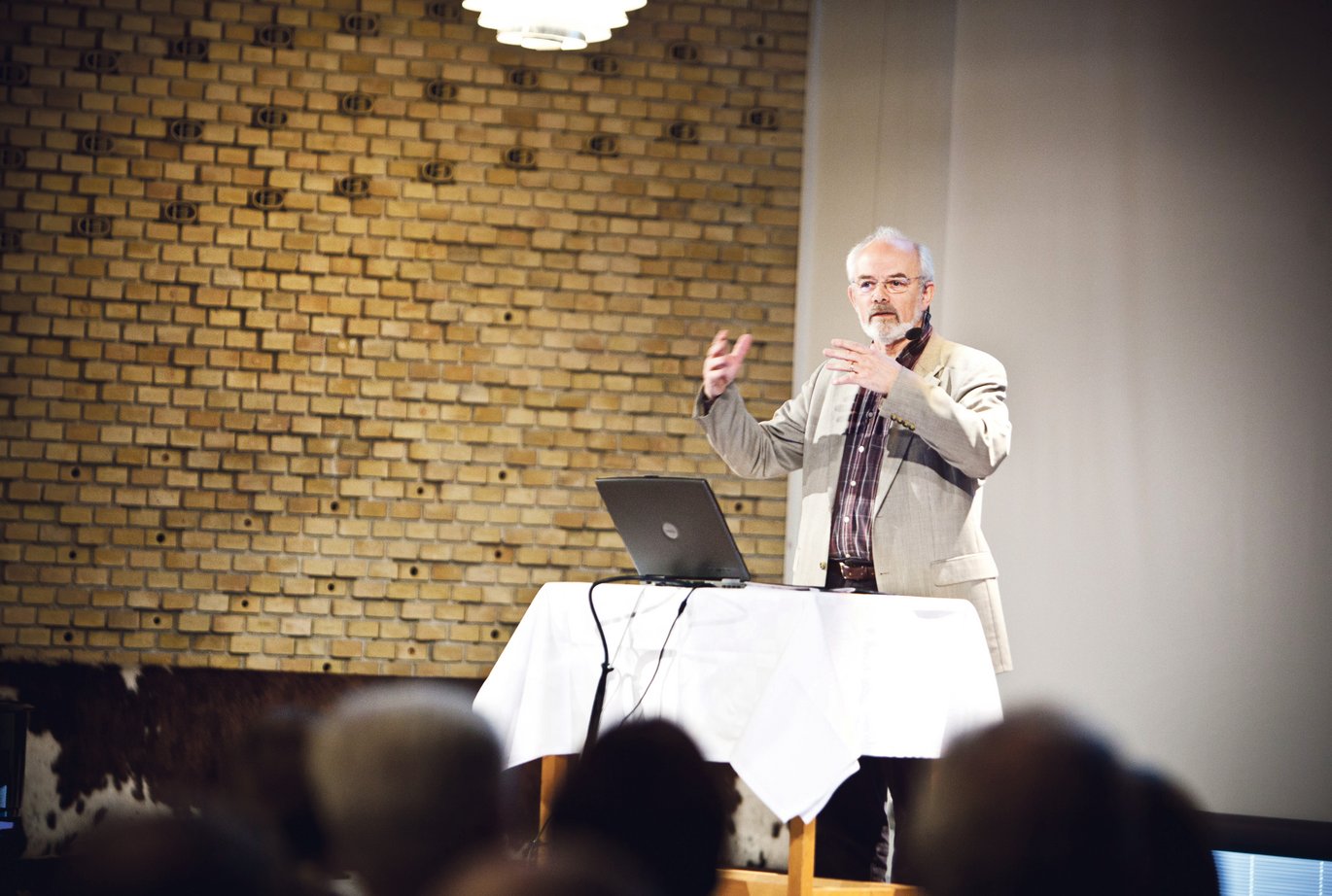What “Tomorrow” brings
The international students and faculty are at the heart of the new strategy for Tomorrow’s Aarhus University.

With all the academic lingo being thrown around – “interdisciplinary education,” “in-depth, core academic knowledge” and the like – one could be forgiven for thinking that the new plans for Aarhus University are merely rhetorical.
But even if it’s chock full of academese, there is indeed a strategy behind “Tomorrow’s Aarhus University.” And international students and faculty are at the heart of it.
Tomorrow’s agenda
On 9 March, Aarhus University’s new senior management group, which consists of Rector Lauritz B. Holm-Nielsen, the pro-rector, the university director and the four new deans, unveiled plans for the future. Changes include everything from the restructuring of departments and faculty, to an increased emphasis on sharing ideas born at AU with society at large.
But according to Kristian Thorn, head of the Aarhus University International Centre, a common thread of Tomorrow’s AU is that international staff and faculty are a key component.
“Strengthening opportunities for international staff at Aarhus University is a big part of what this is,” Thorn says.
One of the headlining goals of Tomorrow’s AU is broadening the university’s academic objectives, with an emphasis on making the university more attractive to international faculty.
In addition to the traditional two-pronged approach to education which emphasises research and education, Tomorrow’s Aarhus University touts the inclusion of talent development and knowledge exchange as part of the university’s core principles.
Rector Holm-Nielsen is confident this will put AU at the forefront of international education.
“I have not heard of anybody who has done this before,” Holm-Nielsen said after the plans were introduced. “In the past, university strategies have been based on two columns: research and education.
Leading the way and incorporating both talent development and knowledge exchange as equally important areas of activity gives Aarhus University a considerable advantage.”
“A wonderful opportunity…”
Of course, talent development and knowledge exchange aren’t the most concrete of terms. That’s why Thorn says that international staff will be integral in defining these objectives moving forward.
“This is a wonderful opportunity,” Thorn says, “for international staff to be part of an interesting process: How do we make Aarhus University a stronger university and a more attractive place to be? We want both Danish and international staff to be part of this discussion and to help us make Aarhus University a destination of choice.”
As far as day-to-day operations, Thorn says one of the biggest differences for international staff will be increased interaction with other disciplines. This, he says, will allow for greater potential for the exchange of ideas and, as a result, innovative research.
The goal is to take ideas born at AU and apply them to global challenges. Holm-Nielsen mentions population growth, climate change and food shortages as just some of the burgeoning problems the world will face in the coming years and decades.
These are problems that, as Thorn points out, transcend a single academic discipline.
“I think the greatest advantage is the new approaches to research – the innovation, to push the frontier of knowledge forward,” Thorn says. “You can of course do that within your scientific field, but if you look across the world, the challenges that we’re facing, all of these have an interdisciplinary nature.”
Outside the classroom, one major change with Tomorrow’s Aarhus University will be increased specialisation among AU’s support staff. Someone from the human resources department, for instance, will have a narrower area of expertise, allowing them to focus on and master more specific tasks as opposed to juggling numerous responsibilities.
“We will be taking a strong system and making it even stronger,” Thorn says.
Making advantage
The foundation of Tomorrow’s Aarhus University is built upon sophisticated academic jargon – “combining profound knowledge of core academic disciplines and interdisciplinary collaboration.”
But according to Thorn, one thing that shouldn’t get lost in translation is that the drawbacks are few, and the rewards potentially great.
“Bottom line: This is great news for international staff at Aarhus University,” Thorn says. “There is absolutely no risk, it’s only going to be more opportunities for the ones that are already here, but also those looking for employment opportunities to come to a well-funded university that’s very innovative and also has the managerial power to do what is necessary. A lot of universities struggle with obsolete structures, but we are really adjusting to the times.”
